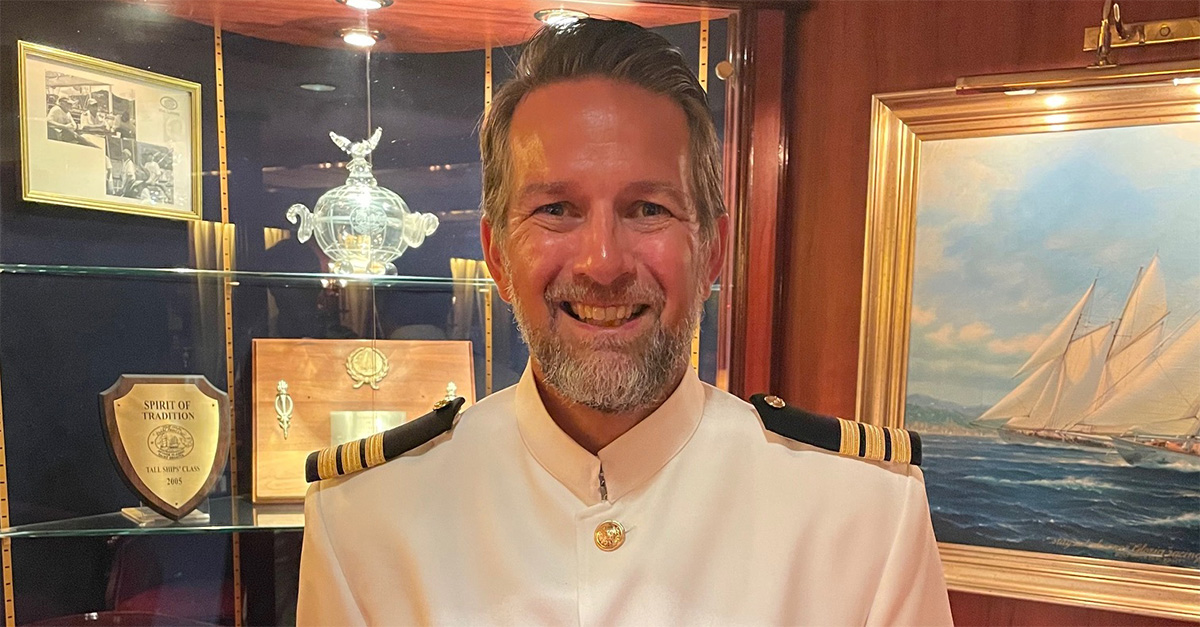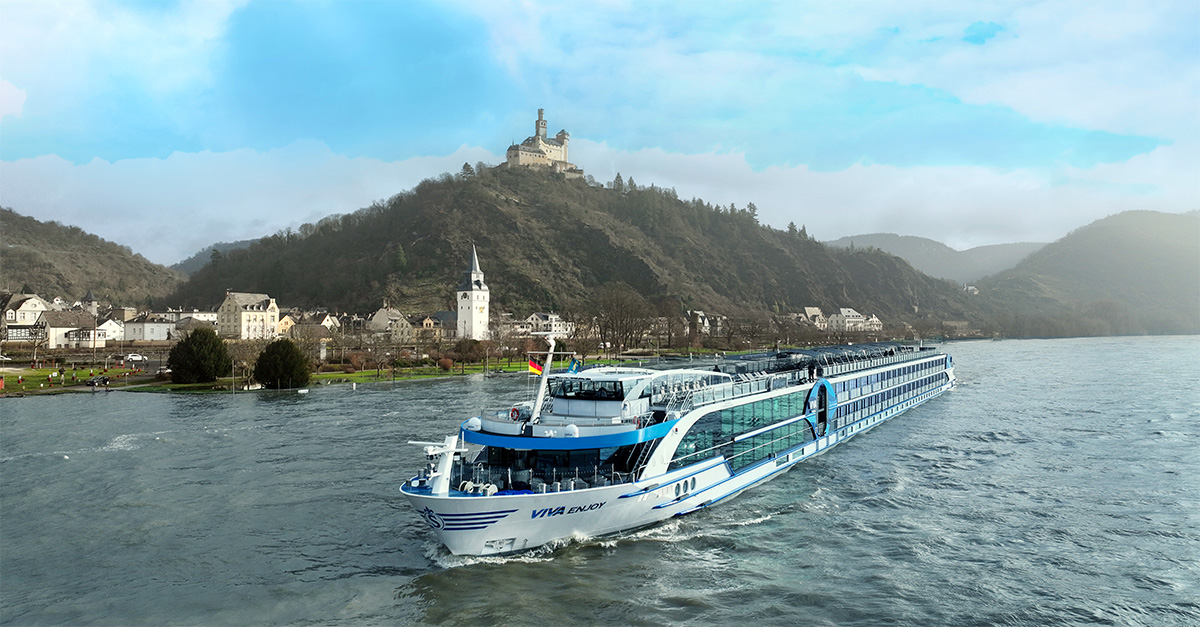Get the answers to your clients’ questions about all-inclusive escapes, writes Katie McGonagle.
Click here to download and save as a PDF.
With so many summer holidays on hold for the foreseeable future, eyes are turning towards the winter-sun market in the hope that a portion of those peak-season losses can be recouped as holidaymakers seek out a much-needed dose of sun and sand.
All-inclusive resorts will be at the forefront of that, offering good-value, hassle-free beach holidays. Yet if clients are picturing cheesy evening entertainment and bars stocked full of cheap local plonk, or think they’ll be cooped up in-resort all day with nothing to do, it’s time to show them how things have changed.
To help you dispel those myths when selling your next all-inclusive break, we’ve canvassed those in the know to help you challenge any outdated ideas.
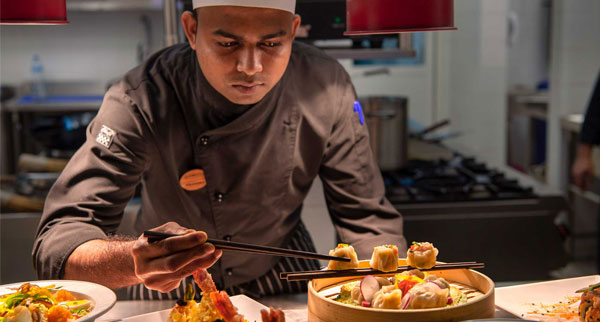
Will the food all be cheap-and-cheerful buffets?
Quite apart from the fact that many resorts are looking at alternatives to buffet dining in light of new social distancing requirements, the idea that all-inclusive dining automatically means mass catering is long gone.
Many resorts have upped their culinary game with à la carte dining from around the world, making food a key selling point, though it’s worth checking whether speciality restaurants are included in the package as they can incur a supplementary charge.
That’s not the case at luxury Cretan resort Daios Cove, where guests of The Residents Club can dine à la carte at any of its restaurants as part of their stay, while Caribbean brand Sandals has up to 16 restaurants per resort – ranging from Jamaican jerk shacks to Japanese sushi restaurants – at no extra charge.
“It’s worth checking whether speciality restaurants are included in the package as they can incur a supplementary charge.”
At Grand Palladium hotels, diners have unlimited access to à la carte restaurants. Sister brands Palladium and Hard Rock offer €30 credit at speciality restaurants every third night, while TRS Yucatan and TRS Turquesa – also part of the same stable – spice things up with a dinnertime cabaret show.
Resorts aren’t just responding to calls for greater variety but for other food trends too. Shandrani Beachcomber Resort & Spa in Mauritius has added vegan and vegetarian restaurant Natura to its roster, while local fare is a priority for Barbadian brand Elegant Hotels, which owns Tamarind, Crystal Cove and Waves. Alex Fiz, vice-president and managing director of all-inclusive at Elegant Hotels owner Marriott International, says: “We believe guests should experience local cuisine and, in this case, showcase the abundance of fresh produce Barbados has to offer. Elegant Hotels hosts a culinary event programme, including market tours, tasting dinners and beach barbecues to celebrate Bajan cuisine.”
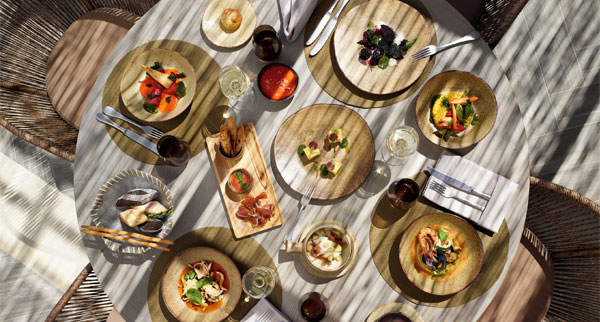
Will bars be stocked with inferior local brands?
You might not always know whether a hotel will have your client’s preferred gin or whisky in every bar – although Sandals goes so far as to name the brands it offers, from Johnnie Walker Black Label and Absolut to Tanqueray and Bombay Sapphire – but you can reassure them that many higher-end resorts guarantee to serve premium-brand spirits and even free-flowing bubbly at breakfast, so clients won’t be disappointed with the quality.
“You can reassure them that many higher-end resorts guarantee to serve premium-brand spirits and even free-flowing bubbly at breakfast.”
Susan Greenhorn, If Only product and commercial manager for Arabia and the Indian Ocean, says: “Staying all-inclusive is a more affordable way to ensure you’re getting VIP treatment throughout your trip, with personalised service and bespoke luxury touches typically included within the initial cost.
“This is especially true when you’re visiting the Indian Ocean. For example, at Emerald Maldives Resort & Spa, guests can enjoy champagne by the glass, a daily-refreshed minibar and gourmet dining at all eateries via the deluxe all-inclusive plan. With all this up for grabs, it’s clear all-inclusive is by no means a low-quality option.”
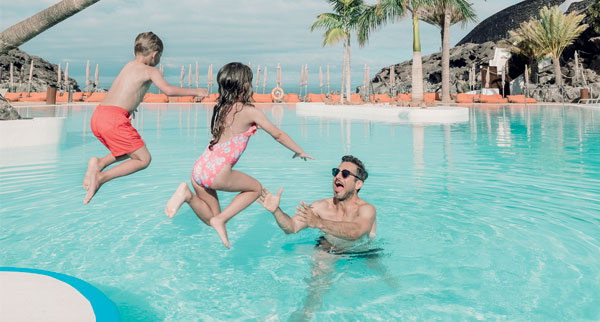
Will there be anything to do except eat and drink?
While food and drink are an important part of what clients are paying for, the inclusions don’t stop there, with access to sports on land, on water and even under the surface – all worth highlighting for those who want to work off a few of those all-inclusive dinners.
At Tui hotel Riu Tequila in Mexico, watersports include volleyball, kayaking and a Padi-certified diving school. Sandals also includes diving for Padi-qualified guests and free green fees on its golf courses. Where they are available, kids’ clubs often form part of the all-inclusive package too, with inventive activities such as the ‘how to be a popstar’ sessions and DJ mixing lessons at Hard Rock Hotel Tenerife.
“Sports on land, on water and even under the surface are all worth highlighting for those who want to work off a few of those all-inclusive dinners.”
Of course, filling your day doesn’t have to mean being active. Aldemar Resorts’ Elements All In package – which has accounted for two-thirds of UK bookings since it was introduced at Aldemar Royal Mare in Crete – covers a day devoted to spa treatments. Guests get yoga and Pilates lessons, a 25-minute massage, half-hour hydrotherapy treatment and 20-minute hydro jet bath, plus access to the sauna and hammam for the day.
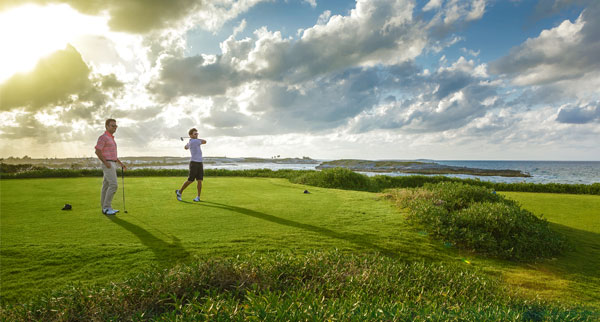
Will I be cut off from local culture?
All-inclusive resorts have come under fire in the past for not encouraging clients to get out and about to embrace local culture and – crucially for the area – spend in local shops and restaurants. Many resorts have listened, and now connect guests with local producers in different ways.
Mauritian group Attitude hotels’ Otentik programme can arrange for guests to eat dinner with a nearby family in their home, learn to play a traditional instrument with a lesson from a local musician, or shop for handmade crafts at the on-site bazaar.
“Attitude hotels’ Otentik programme can arrange for guests to eat dinner with a nearby family in their home or learn to play a traditional instrument.”
In Greece and Spain, Ikos Resorts offers “a luxury all‑inclusive experience like no other”, according to Elegant Resorts head of product Rebecca Turner. She says: “One unique concept is that guests are offered much more flexibility when it comes to dining. In addition to the à la carte restaurants in-resort, which offer menus curated by Michelin-starred chefs, Ikos offers a Dine Out service whereby guests can dine at local restaurants outside the resort as part of their all-inclusive package. And for those who want to explore the area, a complimentary Mini car is available to guests for a full day, so they can easily travel to places of interest.”
At Lily Beach Resort & Spa in the Maldives, visitors get two complimentary excursions on each stay, including a trip to a local village or sunset boat cruise. Meanwhile, resort brands Sandals and Beaches offer a host of excursions through sister company Island Routes Caribbean Adventure Tours, from popular activities such as seeing swimming pigs in the Bahamas or Shirley Heights in Antigua, to a weekly Reading Road Trip to a local school, in partnership with charitable arm the Sandals Foundation.

Ask the experts
Susan Greenhorn, product and commercial manager for Arabia and Indian Ocean, If Only
“I would always choose all‑inclusive when planning my own holiday, because it offers such great value for money. It makes it easier to plan your travels in advance and work out a clear budget as virtually everything is paid for before you arrive.”
Harry Kyrillou, director, Planet Holidays
“All‑inclusives have evolved over the years, especially in Greece, where the idea of endless buffets has been replaced by a huge choice of restaurants and entertainment that are varied and exciting. We recommend the Lux Me all‑inclusives in the Grecotel stable, which offer a great range of additional extras including a 24‑hour concierge service via an app.”
Karl Thompson, director, Unique Caribbean Holidays, UK operator for Sandals
“Many of our agent partners find couples and families are looking for more than the usual fly‑and‑flop holiday, where they spend seven or 14 nights in the same resort. We have seen twin‑centre itineraries take off over the last few years as they offer clients the chance to have the best of both worlds and experience several destinations in one trip. I expect this trend will continue post‑lockdown as clients look to use their time overseas more effectively.”
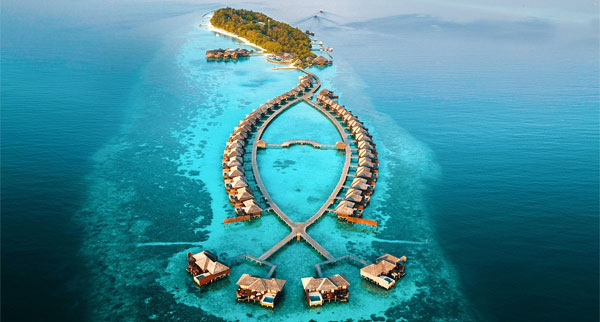
Book it
Tui offers seven nights at Grand Palladium Punta Cana Resort & Spa in the Dominican Republic from £934 per person based on two adults and two children sharing a Junior Suite with balcony on an all‑inclusive basis, with flights from Gatwick departing February 3, 2021, and transfers.
tui.co.uk
Beachcomber Tours offers a week at Shandrani Beachcomber Resort & Spa from £1,795. The price is based on two adults staying all‑inclusive in a Superior Room and includes Emirates flights, complimentary sports and airport transfers in Mauritius, departing February 2, 2021.
beachcombertours.co.uk
If Only offers a week at Lily Beach Resort & Spa in the Maldives, staying in a Beach Villa on a Premium All‑Inclusive package, from £3,359 in November, with flights, speedboat transfers and airport taxes.
ifonly.net
Webcast: How to sell all-inclusive holidays
Read more
The best short-haul summer all-inclusive deals
Get active in Antigua with Fleur East’s W8 Gym
All-inclusive reviews: Dominican Republic, Jamaica and Mexico



